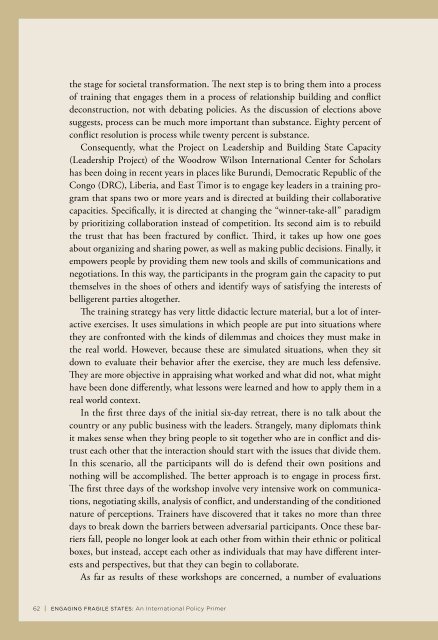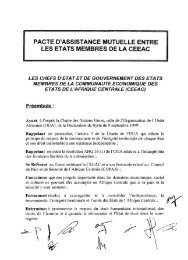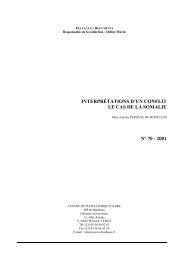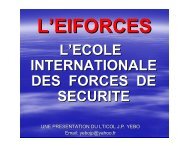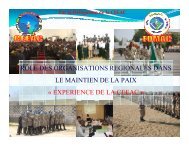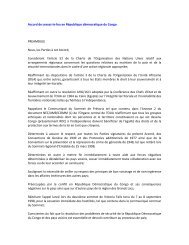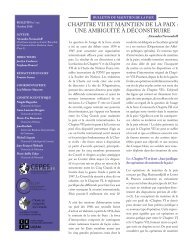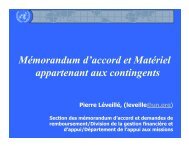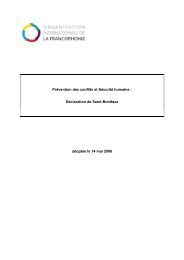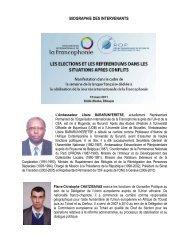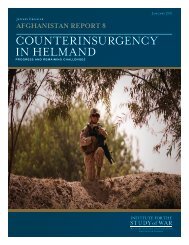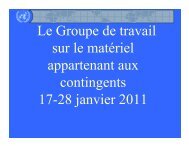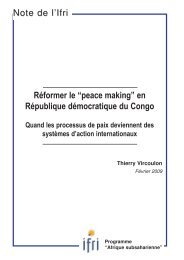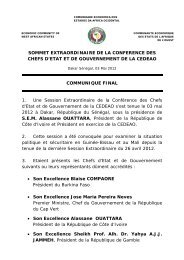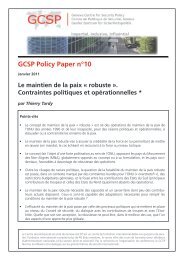engaging fragile states - Woodrow Wilson International Center for ...
engaging fragile states - Woodrow Wilson International Center for ...
engaging fragile states - Woodrow Wilson International Center for ...
You also want an ePaper? Increase the reach of your titles
YUMPU automatically turns print PDFs into web optimized ePapers that Google loves.
the stage <strong>for</strong> societal trans<strong>for</strong>mation. The next step is to bring them into a process<br />
of training that engages them in a process of relationship building and conflict<br />
deconstruction, not with debating policies. As the discussion of elections above<br />
suggests, process can be much more important than substance. Eighty percent of<br />
conflict resolution is process while twenty percent is substance.<br />
Consequently, what the Project on Leadership and Building State Capacity<br />
(Leadership Project) of the <strong>Woodrow</strong> <strong>Wilson</strong> <strong>International</strong> <strong>Center</strong> <strong>for</strong> Scholars<br />
has been doing in recent years in places like Burundi, Democratic Republic of the<br />
Congo (DRC), Liberia, and East Timor is to engage key leaders in a training program<br />
that spans two or more years and is directed at building their collaborative<br />
capacities. Specifically, it is directed at changing the “winner-take-all” paradigm<br />
by prioritizing collaboration instead of competition. Its second aim is to rebuild<br />
the trust that has been fractured by conflict. Third, it takes up how one goes<br />
about organizing and sharing power, as well as making public decisions. Finally, it<br />
empowers people by providing them new tools and skills of communications and<br />
negotiations. In this way, the participants in the program gain the capacity to put<br />
themselves in the shoes of others and identify ways of satisfying the interests of<br />
belligerent parties altogether.<br />
The training strategy has very little didactic lecture material, but a lot of interactive<br />
exercises. It uses simulations in which people are put into situations where<br />
they are confronted with the kinds of dilemmas and choices they must make in<br />
the real world. However, because these are simulated situations, when they sit<br />
down to evaluate their behavior after the exercise, they are much less defensive.<br />
They are more objective in appraising what worked and what did not, what might<br />
have been done differently, what lessons were learned and how to apply them in a<br />
real world context.<br />
In the first three days of the initial six-day retreat, there is no talk about the<br />
country or any public business with the leaders. Strangely, many diplomats think<br />
it makes sense when they bring people to sit together who are in conflict and distrust<br />
each other that the interaction should start with the issues that divide them.<br />
In this scenario, all the participants will do is defend their own positions and<br />
nothing will be accomplished. The better approach is to engage in process first.<br />
The first three days of the workshop involve very intensive work on communications,<br />
negotiating skills, analysis of conflict, and understanding of the conditioned<br />
nature of perceptions. Trainers have discovered that it takes no more than three<br />
days to break down the barriers between adversarial participants. Once these barriers<br />
fall, people no longer look at each other from within their ethnic or political<br />
boxes, but instead, accept each other as individuals that may have different interests<br />
and perspectives, but that they can begin to collaborate.<br />
As far as results of these workshops are concerned, a number of evaluations<br />
62 | Engaging Fragile States: An <strong>International</strong> Policy Primer


